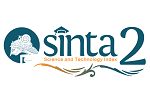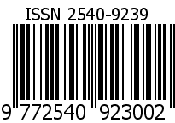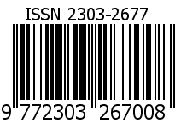Social inclusion-based library development strategies in agricultural institutions
Abstract
Social inclusion-based library transformation is a library service dedicated to improving the community's quality of life and welfare through literacy. The implementation of this program targets the community, farmers, extension workers, and stakeholders in West Java. This research analyzed internal and external factors that influenced the development of libraries based on social inclusion in supporting regional development. This study used a qualitative analysis approach through observation and interview methods with seven respondents involved in social inclusion-based libraries. The study results indicated that the development of social inclusion-based libraries held great potential to improve the community quality of life and support regional development through literacy. The most influential internal and external factors included increased cooperation with village governments and related agencies, strengthening the capacity of human resources for library management, promotional programs, and reinforced institutions and regulations. The SWOT-AHP analysis prioritizes future program development strategies for the institutional model of social inclusion-based libraries, with a focus on encouraging the active role of farmer groups and promoting increased cooperation with related ministries/institutions and boosting increased cooperation with village governments. These three strategies are considered the most effective in strengthening the impact of social inclusion-based library programs on community development, especially in the agricultural and rural sectors.
Keywords
Full Text:
PDFReferences
Abata-Ebire, B. D., Adebowale, J. A., & Ojokuku, B. Y. (2018). Achieving Sustainable Development Goals (SDGS) in Nigeria: The roles of libraries. JALTIM International, 4(2), 89–95. https://www.researchgate.net/publication/328942559_Achieving_Sustainable_Development_GoalsThe_Roles_of_Libraries
Adriyana, L., & Cahyaningtyas, F. D. (2022). The importance of rural library services based on social inclusion in Indonesia (pp. 201–218). https://doi.org/10.4018/978-1-7998-8363-0.ch010
Ashutosh, A., Sharma, A., & Beg, M. A. (2020). Strategic analysis using SWOT-AHP: A fibre cement sheet company application. Journal of Management Development, 39(4), 543–557. https://doi.org/10.1108/JMD-05-2019-0157
Bappenas. (2018). Program prioritas percepatan pengurangan kemiskinan.
Bondar, A. (2019). Analisis pembangunan bidang perpustakaan terhadap peningkatan kualitas manusia dan penurunan kemiskinan. Media Pustakawan, 26(2), 72–80. https://doi.org/https://doi.org/10.37014/medpus.v26i2.178
Collins, H. (2003). Discrimination, equality and social inclusion. The Modern Law Review, 66(1), 16–43. https://doi.org/10.1111/1468-2230.6601002
Davey, S., & Gordon, S. (2017). Definitions of social inclusion and social exclusion: The invisibility of mental illness and the social conditions of participation. International Journal of Culture and Mental Health, 10(3), 229–237. https://doi.org/10.1080/17542863.2017.1295091
Erlina, & Iskandar, I. (2023). Pengaruh PDB sektor pertanian, nilai tukar petani dan investasi sektor pertanian terhadap penyerapan tenaga kerja sektor pertanian di Indonesia. Jurnal Samudra Ekonomika, 7(1), 204–214. https://doi.org/10.33059/jse.v7i01.6758
Fujiwara, D., Lawton, R. N., & Mourato, S. (2019). More than a good book: Contingent valuation of public library services in England. Journal of Cultural Economics, 43(4), 639–666. https://doi.org/10.1007/s10824-019-09369-w
Haryanti, W. T. (2019). Perpustakaan berbasis inklusi sosial. Talenta Conference Series: Local Wisdom, Social, and Arts (LWSA), 2(2). https://doi.org/10.32734/lwsa.v2i2.728
Khoir, S., & Davison, R. M. (2018). iTransformation of a digital village: A community development initiative through ICTs (pp. 114–119). https://doi.org/10.1007/978-3-319-78105-1_14
Labonte, R. (2016). Social inclusion/exclusion and health: Dancing the dialectic. In D. Raphael (Ed.) (D. Rafhael (ed.); 3rd ed., pp. 419–433). Canadian Scholars Press. https://books.google.co.id/books?id=CQkiDAAAQBAJ&printsec=frontcover&hl=id#v=onepage&q&f=false
Mahdi, R. (2020). Strengthening community economy inclusively through literacy for prosperity. The Journal of Indonesia Sustainable Development Planning, 1(2), 160–176. https://doi.org/10.46456/jisdep.v1i2.62
Marston, G., & Dee, M. (2015). The social inclusion policy agenda in Australia: A case of old wine, new bottles? Australian Journal of Social Issues, 50(2), 119–138. https://doi.org/10.1002/j.1839-4655.2015.tb00340.x
Martin, L., & Cobigo, V. (2011). Definitions matter in understanding social inclusion. Journal of Policy and Practice in Intellectual Disabilities, 8(4), 276–282. https://doi.org/10.1111/j.1741-1130.2011.00316.x
Mochammad, R., Ardika MS, R. ., & Cahyono, T. Y. (2020). Library 4.0: Eco-blended library and library inclusion. Khizanah Al-Hikmah: Jurnal Ilmu Perpustakaan, Informasi Dan Kearsipan, 8(2), 116–129. https://doi.org/10.24252/kah.v8i2a2
Moran, M. (2021). Public librarians and community engagement: The way forward (pp. 139–146). https://doi.org/10.1108/S0065-283020210000048015
Prasetya, P. (2023). Determination of business strategy with SWOT and AHP. Jurnal Ilmiah Manajemen Dan Bisnis, 9(2), 263. https://doi.org/10.22441/jimb.v9i2.21571
Pratiwi, H. (2016). Buku ajar : Sistem pendukung keputusan.
Priyanto, I. F., Wibawa, A., & Indarwati, S. (2023). Community engagement through public library social inclusion: The view and practice of librarians in Gunungkidul County, Yogyakarta, Indonesia (pp. 57–72). https://doi.org/10.1108/S0065-283020230000053005
Purwantini, A. H., Aziza, D. A., Kurniawan, A. B., Azizah, F. N., Utami, W. I., & Anggitasari, F. (2021). Optimalisasi peran perpustakaan desa Donorojo berbasis inklusi sosial guna meningkatkan kualitas hidup masyarakat. Community Empowerment, 6(3), 480–485. https://doi.org/10.31603/ce.4348
Pustaka. (2022). Laporan kegiatan semester 1.
Ra’is, D. U. (2017). Peta inklusi sosial dalam regulasi desa. REFORMASI, 7(2), 8–106. https://doi.org/https://doi.org/10.33366/rfr.v7i2.803
Rachman, R. A., Sugiana, D., & Rohanda, H. (2019). Strategi sukses transformasi perpustakaan desa berbasis inklusi sosial untuk masyarakat sejahtera (Studi pada perpustakaan desa Gampingan Gemar Membaca Malang). Communication and Information Beyond Boundaries, 907–918. https://www.researchgate.net/publication/338983808_Strategi_Sukses_Transformasi_Perpustakaan_Desa_Berbasis_Inklusi_Sosial_untuk_Masyarakat_Sejahtera_Studi_Pada_Perpustakaan_Desa_Gampingan_Gemar_Membaca_Malang
Rahman, A., & Octaviani, E. (2020). Analisis produktivitas tenaga kerja sektor pertanian dan kemiskinan di Indonesia. Variasi, 2, 39–48. https://ojs.unm.ac.id/variansistatistika/article/view/19498/pdf
Ramadhani, R. W., & Prihantoro, E.-. (2020). Strategi komunikasi pembangunan pemerintah kabupaten Bojonegoro dalam menerapkan Nawacita dan Tujuan Pembangunan Berkelanjutan. Jurnal Komunikasi Pembangunan, 18(02), 117–129. https://doi.org/10.46937/18202028913
Safira, F., Saleh, C., & Suprapto, A. (2015). Implementasi program PERPUSERU dalam upaya meningkatkan pelayanan perpustakaan (Studi kasus pada Corporated Social Responsibility Coca Cola Foundation Indonesia di Perpustakaan Kabupaten Sidoarjo). Jurusan Administrasi Publik, 3(5), 770–774. https://media.neliti.com/media/publications/81760-ID-implementasi-program-perpuseru-dalam-upa.pdf
Setiawan, A. (2022). Minerals and coal reserves potential in Indonesia and the world. INTAN Jurnal Penelitian Tambang, 1(1), 20–31. https://doi.org/10.56139/intan.v1i1.7
Silver, H. (2015). The contexts of social inclusion. SSRN Electronic Journal. https://doi.org/10.2139/ssrn.2641272
Siregar, A. H. (2014). Pengelolaan barang tambang dalam hukum Islam dan hukum positif. Al-Mazaahib: Jurnal Perbandingan Hukum, 2(2). https://doi.org/10.14421/al-mazaahib.v2i2.1375
Statistik, B. P. (2021). Statistik petanian Indonesia.
Sutarsyah, Kusmayadi, E., Widaryono;, & Junaidi, H. (2022). Transformasi perpustakaan khusus berbasis inklusi sosial: Inovasi Perpustakaan Pertanian. VISI PUSTAKA: Buletin Jaringan Informasi Antar Perpustakaan, 24(3), 287–299. https://doi.org/10.37014/visipustaka.v24i3.3365
UNDESA. (2016). Identifying social inclusion and exclusion (pp. 17–31). https://doi.org/10.18356/5890648c-en
Wiyono, E. (2021). Library transformation based on social inclusion in accelerated
COVID-19 pandemic treatment. https://doi.org/10.2991/assehr.k.210629.035
Wulansari, A., Sumaryanti, L., Syam, A. ., Laksana, S. D., & Asih, A. (2022). Dampak transformasi perpustakaan desa berbasis inklusi sosial terhadap kesejahteraan masyarakat. Publication Library and Information Science, 5(2), 34–47. https://doi.org/10.24269/pls.v5i2.4805
DOI: https://doi.org/10.24198/jkip.v13i1.50312
Refbacks
- There are currently no refbacks.
Copyright (c) 2025 Author(s)

This work is licensed under a Creative Commons Attribution-ShareAlike 4.0 International License.
Jurnal Kajian Informasi & Perpustakaan Indexed by:
Jurnal Kajian Informasi & Perpustakaan
Program Studi Perpustakaan dan Sains Informasi d.h. Program Studi Ilmu Perpustakaan
Fakultas Ilmu Komunikasi, Universitas Padjadjaran
Jl. Raya Bandung-Sumedang Km. 21 Jatinangor, Sumedang, Indonesia 45363
WA: +62 877-1860-4022 (Risa Nurisani)
Telepon: +62227796954
Faksimile: +62227794122
email: jkip.fikom@unpad.ac.id
Jurnal Kajian Informasi & Perpustakaan is licensed under a Creative Commons Attribution-ShareAlike 4.0 International License
Jurnal Kajian Informasi & Perpustakaan supervised by:












2.png)
.png)



